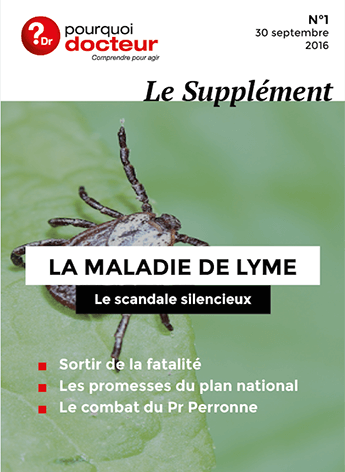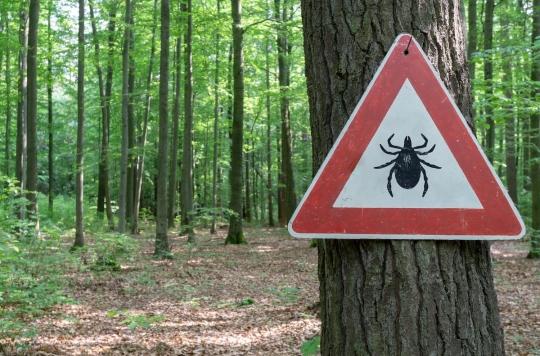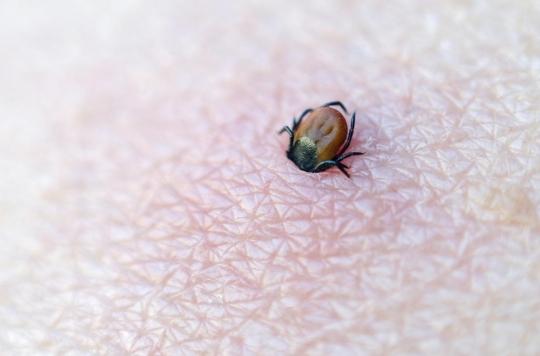INTERVIEW – Organizer of the ILADS congress, which was held in Paris, Prof. Christian Perronne takes stock of the progress of the Lyme plan launched by France.
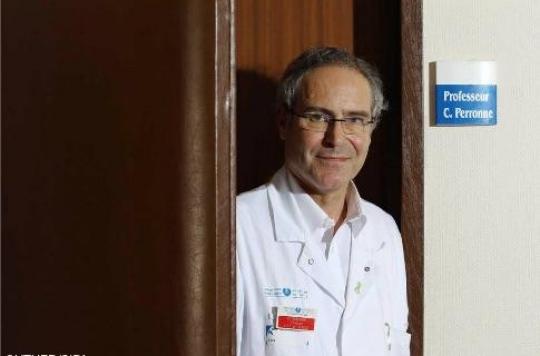
On September 29, the former Minister of Health, Marisol Touraine, announced the launch of a national plan to fight Lyme disease and diseases transmissible by ticks. It provides for multidisciplinary consultation to advance research on this still poorly understood disease, and to review diagnostic and treatment protocols.
Highlighted by this stated desire for action, France is hosting the Congress of the International Society for Lyme Disease and Associated Diseases (ILADS) on May 19 and 20. It is organized by Prof. Christian Perronne, head of the infectious disease department at the Raymond-Poincaré hospital in Garches, and one of the spearheads in the fight against the disease.
Supported by patient associations, he fights in particular for the recognition of a chronic form of the disease, increasingly accepted but still controversial, and in particular refuted by the National Reference Center on Lyme disease, located in Strasbourg. . For Why actor, Professor Perronne discusses the challenges of international consultation and the future of the Lyme plan.
Where are we in the progress of the Lyme plan?
Prof. Christian Perronne: Currently, the working group is advancing on diagnostic recommendations and treatments. A second meeting has already taken place. The preparation of the final text will undoubtedly take a little time, because there is a lot of work to be done. The report, originally scheduled for July, is not expected to see the light of day until October. But for now, the discussions are cordial, and I hope they will move in the right direction.
I also hope that we can reach a sort of consensus, even if it will not be a real consensus, because we still lack solid scientific data in certain areas, in terms of diagnosis and treatment. We do not all necessarily agree, but opinions will undoubtedly converge on a common approach. We are not yet at discussing the more delicate points, but in the worst case, the recommendations will offer two options.
Prof. Christian Perronne, head of the infectious disease department of the Raymond-Poincaré hospital in Garches: “What is happening in France is widely watched around the world …”
France, by this plan, she shows the example?
Prof. Christian Perronne: What is happening in France at the political and media levels is widely watched in the world, in Europe and North America in particular, because it is exemplary. The United States has passed a law on Lyme disease, which recognizes the chronic form in particular, which is a big step forward. But they have not yet formed a multidisciplinary working group to review the recommendations, as we did in France.
Are the different countries moving in the same direction?
Prof. Christian Perronne: For the moment, there are many questions at the level of political authorities in many countries. British parliamentarians have decided to create a Lyme working group in parliament. A Canadian MP also explained to me that discussions were underway at the political level. In Sweden, patients and doctors are lobbying for recognition of chronic Lyme. I am also part of an international think tank which is due to meet WHO officials in Geneva in June, so that chronic Lyme disease is no longer imaginary, but a recognized pathology with a disease code, like all others.
The ILADS congress is important in this sense, as it brings together experts from all over the world. It will make it possible to exchange recent scientific data and experiences on patient care, and on research. These exchanges between the different countries help to advance knowledge about the chronic form of the disease and the management of patients, which is very deficient in the majority of countries.
Agnès Buzyn takes Lyme very seriously
With the new ministerial composition, and the replacement of Marisol Touraine, who had piloted the Lyme plan, the cards could be reshuffled. But the change of government does not worry Professor Christian Perronne. “I don’t think the attitude towards Lyme disease is changing,” he says. There is now a general conviction at the level of the health authorities, the Haute Autorité de Santé (HAS), the General Directorate of Health. “
A conviction reinforced by the appointment of the former president of the HAS College, Agnès Buzyn, as the new Minister of Solidarity and Health. “Having already discussed Lyme disease with her, I know she takes it very seriously,” adds the infectious disease specialist. She has set up work within the HAS, so I have no doubts about how the new government is going to tackle Lyme disease. For the moment, it is no longer certain experts on the ground who are blocking, and refusing to move their position. “
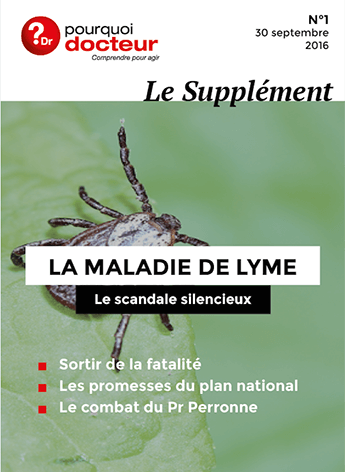
.











